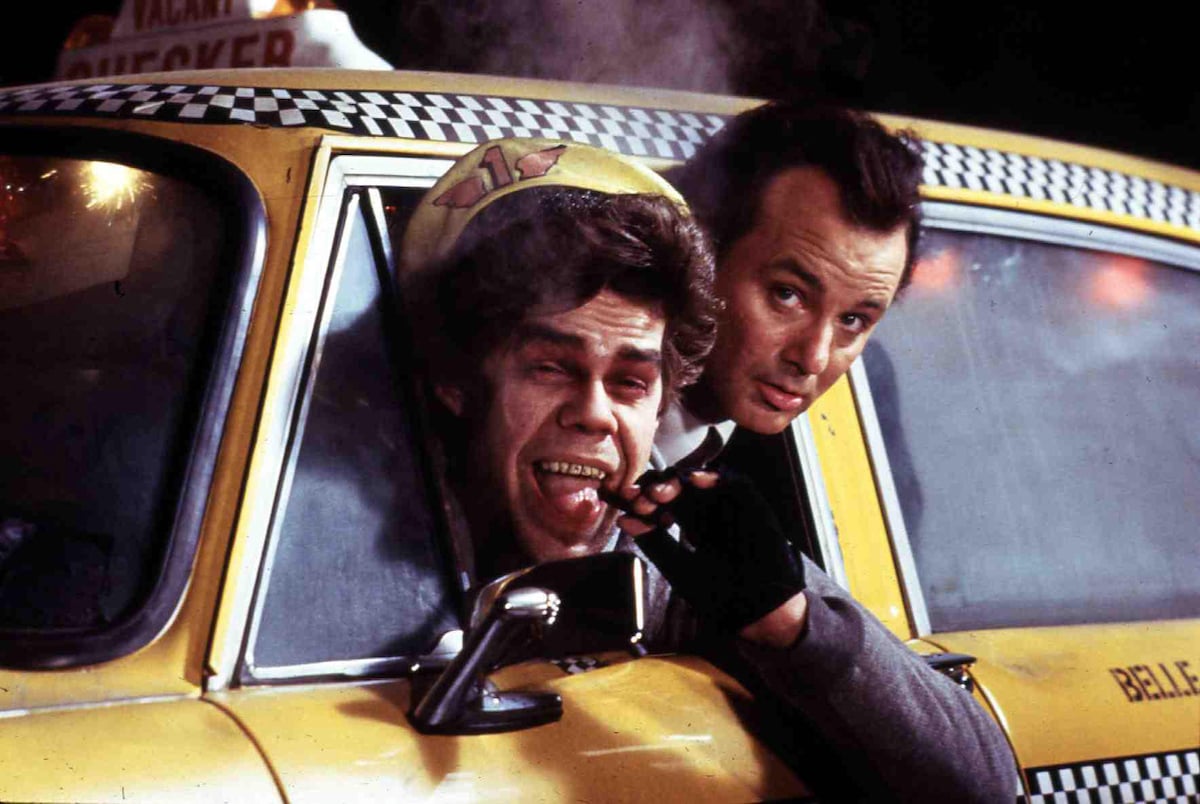
Bill Murray Confronted a Famous Critic for His 1-Star Review of the Christmas Movie ‘Scrooged’
Children of the ’80s fondly remember Scrooged as an irreverent Christmas classic. The Bill Murray vehicle was a hit in theaters, but it didn’t get a warm reception from movie critics, including the most iconic: Roger Ebert. Time has been kind to Scrooged and Murray’s career, as the former Saturday Night Live cast member transitioned from a comedy megastar to an award-winning actor. However, Ebert’s scathing review of Murray’s Christmas movie stuck with the star and prompted him to confront the critic years later.
‘Scrooged’ is a satirical movie about the spirit of Christmas

Scrooged is the most experimental adaptation of A Christmas Carol. The film stars Bill Murray as Frank Cross, a TV network executive overseeing a live Christmas Eve production of the Charles Dickens classic upon which the movie is based.
The rest of the film follows the basic plot of every other Christmas Carol rework but does so with a divisive, cynical edge informed by the state of America in the late ’80s. (Scrooged premiered on Nov. 23, 1988.) Frank is an avatar for Reagan-era corporate toxicity. He’s obsessed with profits and ratings and shouts abuse at nearly every character he interacts with for most of the movie.
Of course, in the end, he finds his conscience thanks to the Christmas spirits’ intervention. But the tone of the comedy is so harsh for so long that Frank’s eventual turn to kindness didn’t land with some viewers and influential critics.
Roger Ebert’s review of ‘Scrooged’ led to an awkward interview with Bill Murray
Scrooged made $100 million worldwide on a $32 million budget. The movie has a 69% critics’ rating and a 71% audience rating on Rotten Tomatoes, reflecting that many people found it too mean for a Christmas movie. Few disliked it more than the late Roger Ebert. This is the opening paragraph of his one-star review (via RogerEbert.com):
“Scrooged is one of the most disquieting, unsettling films to come along in quite some time. It was obviously intended as a comedy, but there is little comic about it, and indeed the movie’s overriding emotions seem to be pain and anger. This entire production seems to be in dire need of visits from the ghosts of Christmas.”
Ouch.
The criticism stuck with Murray, who brought up the review two years later while they discussed the actor’s directorial debut, Quick Change. According to Ebert:
He disappeared into the bathroom and then stuck his face out again, covered with lather, and asked, “How do you plan to explain your one-star review of Scrooged?”
“I was hoping it wouldn’t come up,” I said.
“It wasn’t that bad,” Murray said. “It had some good stuff in it. Watch it on video and you’ll see.”
“It just didn’t work for me,” I said.
“I thought maybe you had some inside information, you know, about an unhappy set or something,” he said.
“No,” I said, “it just didn’t seem that funny. Did you have some disagreements with the director?”
“Only a few,” he said. “Every single minute of the day. That could have been a really, really great movie. The script was so good. There’s maybe one take in the final cut movie that is mine. We made it so fast, it was like doing a movie live. He kept telling me to do things louder, louder, louder. I think he was deaf.”
RogerEbert.com
Both men come off pretty well in the exchange. Murray was surprisingly respectful for an actor who had held onto this review for years. And Ebert deserves credit for sticking up for his opinion when confronted by someone with a much bigger public persona.
‘Scrooged’ is 1 of many hits in Bill Murray’s filmography
Bill Murray’s first starring role was in 1979’s Meatballs, kicking off a decade-long run as one of America’s favorite celebrities. In the ’80s, he played pivotal roles in Caddyshack, Stripes, and Ghostbusters while also playing supporting characters in Tootsie and Little Shop of Horrors.
He wasn’t as successful in the ’90s but still left a mark on the era with Groundhog Day and Rushmore, the first of his nine collaborations with Wes Anderson. The latter signaled Murray’s transition into more dramatic work by combining his sense of humor with a melancholy that allowed him to portray more nuanced characters. He did so again for Anderson in The Royal Tenenbaums and The Life Aquatic With Steve Zissou and in Sofia Coppola’s Oscar-winning Lost in Translation.
But Murray is still, first and foremost, a comedic presence and one of the few of his era who remains entertaining on screen for more than just nostalgia.


